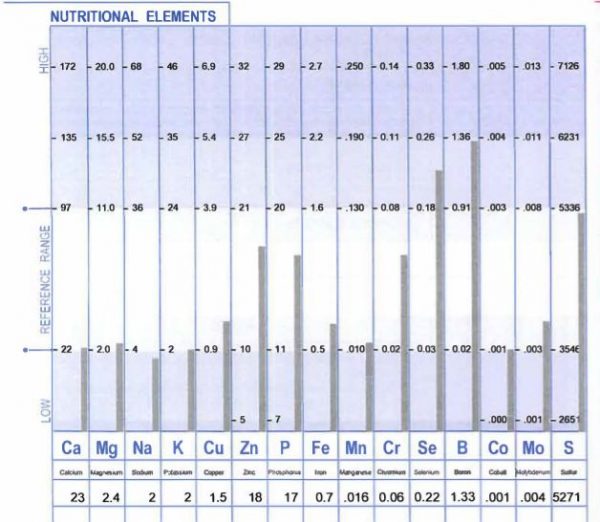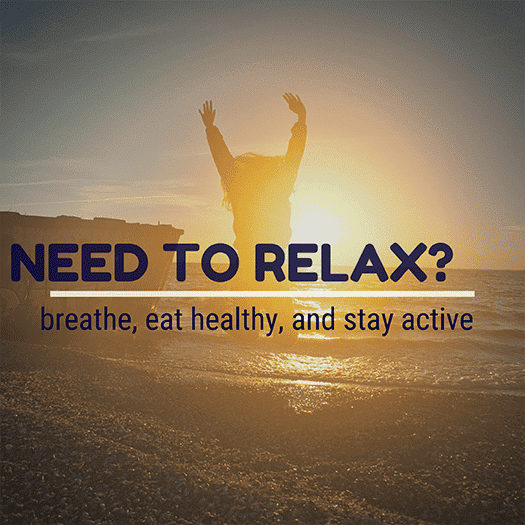Occasional anxiousness is fairly common in the United States, with roughly 40 million people experiencing it per year. Further, roughly 13 percent of the world’s population is affected by occasional anxiousness.
Anxiety is a normal response to danger or other potential threats. However, when you experience it in excess, or in times where you are not being threatened, it can be hard to control and will have adverse effects on the body.

If you are feeling anxious, implementing daily (or weekly) habits into our lives can, well, help us relax.
- Breathe: You will always have access to your breath. A quick Google search and you will have unlimited options of 1-15 minute breathing exercises to help you come back into the moment and redirect your attention to something more positive (bonus Google search: Vagus Nerve Breathing Exercises!). Or try a meditation app with a breathing instruction. We recommend Calm, The Mindfullness App or Stop, Breathe & Think.
- Moderate Exercise: Yoga is sweeping the nation as a great way to stay active and relax at the same time. Yoga involves movement powered by breath and the regular moderate exercise is a great way to stay physically and mentally healthy. Not into Yoga? Take a walk around the block instead!
- Hot Tea: Drinking a cup of tea is becoming more popular to unwind after a long day. Some great options are chamomile, lavender and valerian root to quiet the brain. To make the experience even better, enjoy a good book or a bath while sipping.
Want to go a step further? Take a Mineral Hair Analysis Test.
Now, you may be wondering how I went from deep breaths, yoga and tea to a mineral hair analysis test. Everything is connected. Our mental and physical health is just as important as our nutritional health and they all work together. When it comes to occasional anxiousness, we can learn a lot from our zinc and copper levels specifically.
The ratio between these two minerals can potentially help us better understand why we may be feeling sad, anxious or extremely fatigued. For example, a low zinc-copper ratio (copper dominant) could mean that you suffer from extreme fear or emotionalism.
How do we know? Many studies have been done around the world confirming the relationship between occasional anxiousness and our zinc and copper levels1. With a simple tweak to a diet or supplement program, it is possible to lessen these anxious tendencies (especially paired with your favorite activity for relaxation!). Of course, speak with a doctor or therapist about all your options and what will work best for you.
What are the signs of a copper imbalance?
A copper imbalance affects your stimulatory neurotransmitters. Neurotransmitters are essentially the messengers for our cells to communicate, they influence our mood, body movements and everything in between. Stimulatory neurotransmitters job is to tell us to act after a specific event (think fight or flight or adrenaline). These transmitters are obviously important, but if we are living in a constant state of fight or flight it will begin to have effects on our mental health, digestive function and overall wellness.

On a mineral hair test you can detect a copper imbalance in a few different ways:
- Very High or Low Zinc-Copper Ratio
- High Calcium Levels
- Low Sodium-Potassium Ratio
- Low Potassium
- High Calcium-Potassium Ratio
- (Sometimes) Mercury Toxicity
There is a delicate relationship between all minerals and having an imbalance in one area can encourage imbalances in other areas. So, the overall goal here is to balance all mineral levels and the best way to do this is start by taking a mineral hair analysis test to better understand your profile.
How can you balance the ratio?
Balancing ratios may not be as complicated as you think with diet and supplement changes and a follow up test every 3-6 months to monitor progress. It is worth noting that on the path to wellness taking your mental, physical and spiritual health seriously are all important factors. Making changes in one area and not the other can further imbalances. So, start with your favorite way to relax, improve your diet, encourage moderate regular exercise and you will likely be on your path to living more relaxed.

